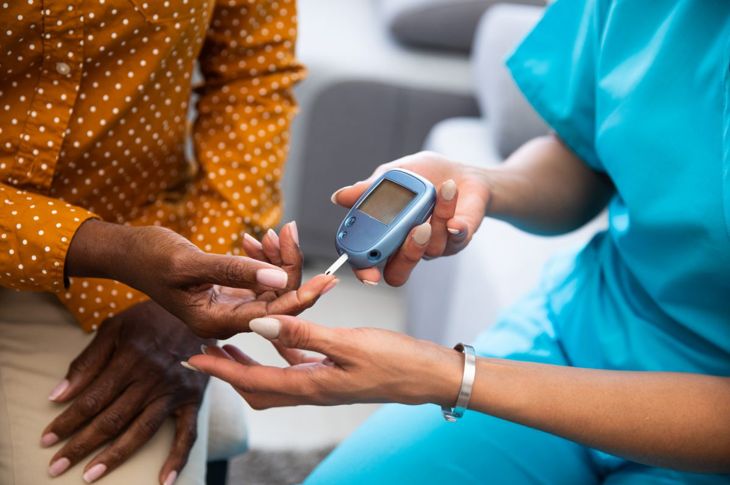Nutritional deficiencies develop when the body does not receive or absorb sufficient amounts of nutrients from food. Individuals who are deficient in thiamin, the scientific name of vitamin B1, can develop beriberi. While it is most prevalent in developing countries where famine or food insecurity exists, there are other causes for the condition, as well.
Why Thiamin — Vitamin B1 — is Important
The human body’s supply of thiamin comes solely from food consumption, and these sources deplete quickly. To process carbohydrates and produce energy, the body needs a constant, steady supply of vitamin B1. Thiamin also helps process proteins and fats, which are essential for healthy nerve and heart function.
Types of Beriberi
A person not getting sufficient thiamin can develop one of two forms of beriberi. Wet beriberi causes the heart to beat faster and pump more blood at a capacity it cannot sustain, potentially resulting in heart failure. Dry beriberi affects the nervous system, causing a burning, pins-and-needles sensation and numbing in the feet and legs. If the deficiency continues, the muscles begin to atrophy and the condition spreads to the arms.
Wernicke Encephalopathy and Korsakoff Syndrome
When thiamin levels fall too low, brain cells cannot produce enough energy to function properly, which can lead to the brain disorder Wernicke-Korsakoff syndrome. The syndrome is the combination of two conditions: Wernicke encephalopathy and Korsakoff syndrome. Wernicke encephalopathy causes damage to the lower parts of the brain — the thalamus and the hypothalamus —and can be fatal if not treated. As its symptoms start to fade, Korsakoff syndrome, a chronic, short-term memory disorder, develops.
Genetic Beriberi
Most cases of beriberi occur sporadically. But in rare cases, parents pass down a type to their children that prevents their bodies from absorbing thiamin from foods. This condition can progress slowly, and symptoms develop in adulthood. People with this kind of beriberi require regular thiamin supplements to maintain healthy levels of vitamin B1.
Thiamin Absorption
Studies show that long-lasting diarrhea, alcohol consumption, and liver disorders may interfere with the body’s ability to absorb and metabolize thiamin, leading to beriberi. Additionally, alcoholism, hyperthyroidism, strenuous exercise, fever, breastfeeding, and pregnancy increase the body’s need for vitamin B1. As a result of those studies, researchers identified specific biomarkers that cause impairment of thiamin transport and metabolism: SLC19A2, SLC19A3, SLC25A19, and TPK-1.
Diet Factors Leading to Beriberi
People who consume diets high in processed carbohydrates, such as grains, white flour, white sugar, and white rice have a higher incidence of thiamin deficiencies. The recommended daily requirement is 1.2 milligrams for adult men and 1.1 milligrams for women. Including in the diet whole grains, meats like pork and liver, enriched cereals, potatoes, nuts, and foods containing dried yeasts usually provides sufficient levels of thiamin.
Risk Factors for Beriberi
Some people are at higher risk of developing beriberi. A breastfed child whose mother lacks adequate thiamin could develop the disease, as can infants who are fed formulas with insufficient amounts of the vitamin. Other at-risk groups include:
- Older adults
- People with anorexia
- People with diabetes
- Those who have undergone gastric surgery
- People undergoing dialysis treatments
- People taking high doses of diuretics
- People with HIV/AIDS
Symptoms of Beriberi
The early signs of beriberi include fatigue, irritability, loss of appetite, sleeping problems, memory loss, weight loss, and abdominal discomfort. People with dry beriberi complain of pain and cramps in the legs, along with muscle atrophy. Leg edema and lung congestion occur in those who have developed wet beriberi. If the deficiency is severe, additional symptoms may develop that affect the heart, nervous system, and brain.
Diagnosis, Treatment, and Prognosis
Doctors who suspect a thiamin deficiency may perform a TDP blood test to measure thiamin levels, but they may also order urine studies, a functional enzyme test, and a metabolic acidosis test. Treatment includes thiamin infusions or oral doses. The prognosis for most patients is good; however, those diagnosed with Korsakoff syndrome often have long-lasting or permanent symptoms.
Research
Ongoing animal studies show that thiamin deficiency could play a role in the development of Alzheimer’s disease. Insufficient levels of thiamin and decreased activity of thiamin-dependent enzymes cause an array of issues in the brain, beginning with oxidative stress and potentially leading to neuron death. Both are markers of Alzheimer’s disease. Memory loss, plaque formation, and changes in glucose metabolism follow, which are additional signs of the disease.

 Home
Home Health
Health Diet & Nutrition
Diet & Nutrition Living Well
Living Well More
More




















